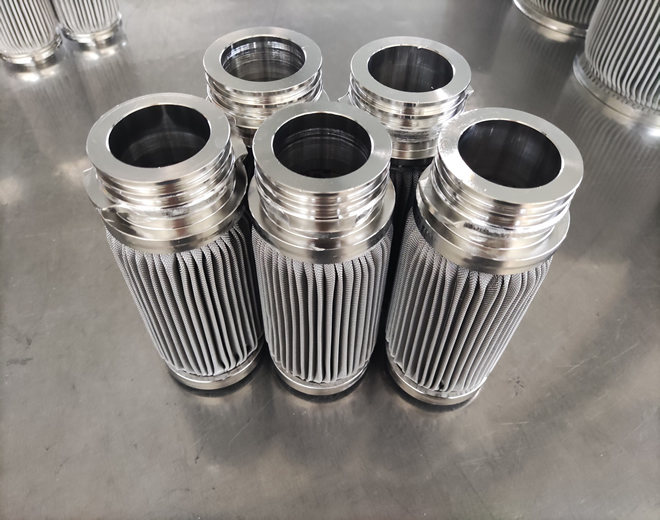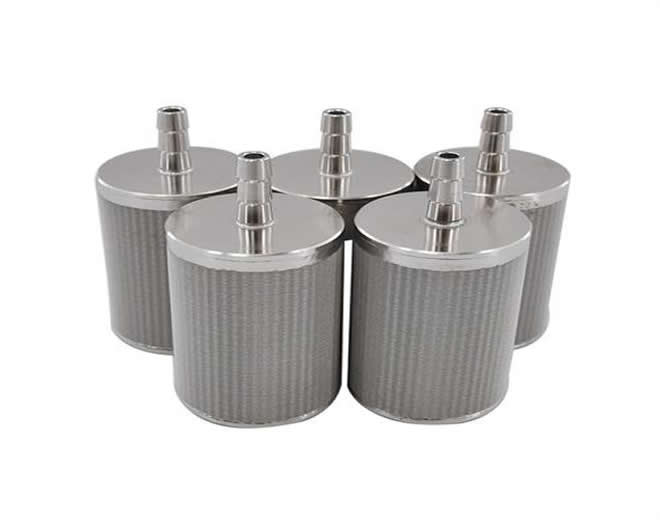Stainless steel filter elements play a crucial role in the pharmaceutical industry, primarily used for the purification of drugs and filtration of solvents during production processes to ensure the quality and safety of pharmaceutical products. Due to their corrosion resistance, high-temperature tolerance, mechanical strength, and ease of cleaning, these filters are widely utilized at various stages of pharmaceutical production.
Application Locations in Production Lines
1. Raw Material Filtration : Used in the initial stages of production to filter raw pharmaceutical materials, including various chemical reagents and solvents.
- Filtration Requirements : Remove solid particles, suspensions, and other impurities to ensure the purity of raw materials.
2. Intermediate Product Filtration : Applied during the synthesis of drugs to filter intermediate products.
- Filtration Requirements : Remove reaction by-products, catalyst residues, and other impurities to ensure the purity of intermediate products.
3. Final Product Filtration : Used in the final stages of drug production to filter the finished products.
- Filtration Requirements : Remove all fine particles, bacteria, and microorganisms to ensure the quality and safety of the pharmaceutical products.
4. Filtration of Injectables and Infusions : Used during the production of injectables and infusion products to ensure sterility and safety.
- Filtration Requirements : Efficiently remove bacteria and microorganisms to meet sterility requirements.
5. Air and Gas Filtration : Employed in the filtration of air and gases within the production environment to ensure the air quality in cleanrooms.
- Filtration Requirements : Remove particles and microorganisms from the air to maintain a sterile and clean production environment.
6. Wastewater Treatment : Used in the treatment of pharmaceutical wastewater to ensure compliance with environmental standards.
- Filtration Requirements : Remove harmful substances and fine particles to ensure the wastewater meets discharge standards.
Filtration Requirements
1. High Filtration Precision : Depending on the specific application, the filtration precision may vary. Generally, the pharmaceutical industry requires filtration precision ranging from 0.1 microns to 1 micron to ensure the removal of bacteria and microorganisms.
2. Material Requirements : Stainless steel filter elements should be made of pharmaceutical-grade stainless steel, such as 304 or 316L, to ensure corrosion resistance and safety.
3. High-Temperature Tolerance : Filters should be able to withstand high-temperature sterilization conditions to meet the sterilization requirements of the pharmaceutical industry.
4. Mechanical Strength : Filters must be able to endure high pressure and mechanical stress without failing during use.
5. Ease of Cleaning and Regeneration : Filters should be designed for easy cleaning and regeneration to maintain efficiency and reduce downtime.
6. Sterility : Ensure microbial control during the filtration process to prevent secondary contamination, especially when filtering injectables and infusion products.
7. Compatibility : Filters must be compatible with specific drugs and solvents to avoid reactions that could compromise the quality of the pharmaceuticals.
8. Flow and Pressure Requirements : Filters must be designed to handle the specific flow rates and pressure conditions of the production line to ensure continuous and efficient production.
In conclusion, stainless steel filter elements are essential in the pharmaceutical industry, providing effective filtration and purification at various stages of production. They ensure the quality and safety of pharmaceutical products, complying with relevant pharmaceutical production standards and regulations.



